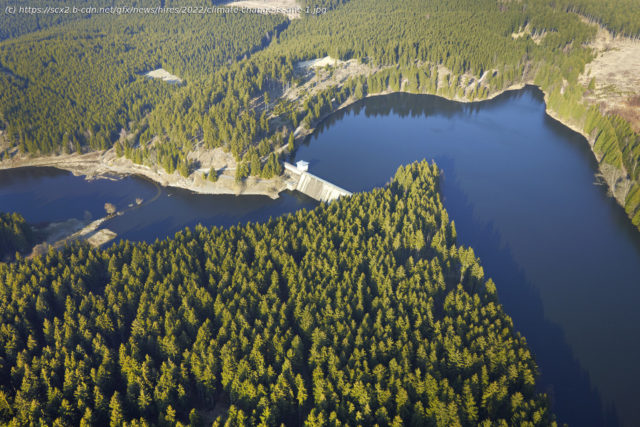Heat waves, drought, floods, forest fires—the consequences of climate change are increasing and are changing our environment. A prime example is the countryside in the catchment area for the Rappbode reservoir in the eastern Harz region. This is the largest drinking water reservoir in Germany and provides drinking water for roughly 1 million people.
September 9, 2022
Heat waves, drought, floods, forest fires—the consequences of climate change are increasing and are changing our environment. A prime example is the countryside in the catchment area for the Rappbode reservoir in the eastern Harz region. This is the largest drinking water reservoir in Germany and provides drinking water for roughly 1 million people.
Long periods of drought over the years from 2015 to 2020 have so severely weakened the tree population in the Harz region that parasites such as bark beetles have been able to propagate. This further exacerbated the effect: The trees were further damaged and quickly died off.
« Over the past four years, the Rappbode catchment area, characterized by conifers, primarily spruce, has lost over 50 percent of its forest, » says UFZ hydrologist and last author Prof. Michael Rode. « This massive forest dieback is advancing rapidly and is dramatic. This will have consequences for the drinking water reservoir. »
Forests play a key role in the water cycle. They filter the water and bind nutrients and are therefore necessary for good water quality. The fewer nutrients—i.e. nitrogen or phosphorous compounds—contained in reservoir water, the better it is for drinking water treatment. « This makes it more difficult for algae to develop, making drinking water treatment in the waterworks more cost-effective and easier, » explains UFZ lake researcher and co-author Dr. Karsten Rinke.
« Nutrient management in water conservation areas is therefore very important. Over the past decades, long-term concepts with close cooperation between forest and water management have advanced the development of large areas of forest in the Rappbode reservoir catchment area.






